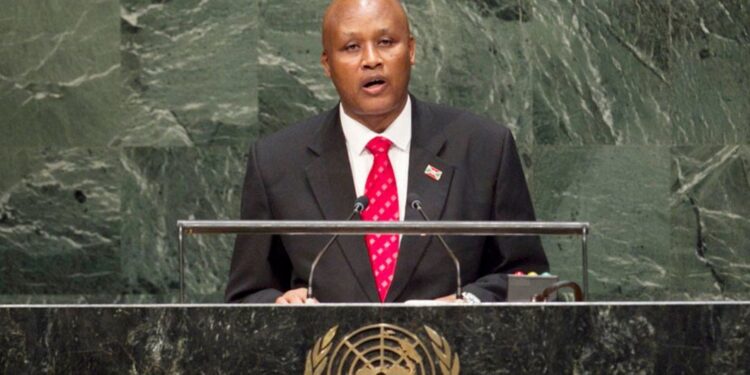The Burundi government’s failure to give a reliable account of the cause and casualties of a fire that razed a block at Gitega’s central prison on December 7, 2021 has prompted calls for a thorough and transparent investigation to establish the truth of the tragedy.
Human Rights Watch expressed concern that the authorities have failed to conduct a transparent, credible, and impartial investigation into the fire to examine the circumstances of its origins and spread, officials’ reaction and their failure to evacuate prisoners, and to accurately count and identify the dead and injured.
“More than a month after the tragedy at Gitega prison, the government has failed to give a full and truthful accounting of what happened and to treat family members of the deceased with dignity,” said Lewis Mudge, the Central Africa director at Human Rights Watch (HRW). “The absence of information about the real number and identities of the victims only adds further pain and distress in the wake of unimaginable loss.”
The organisation said the authorities should transparently communicate the findings, which should include the names of the dead and injured, and fairly prosecute anyone who may be held responsible. It also asked for compensation, medical care, and mental health support for survivors and victims’ family members.
There has been controversy over the number of the people killed and injured in the fire, with government officials giving conflicting figures. Reports indicate that the dead were buried in mass graves without any effort made to identify them. Vice President Prosper Bazombanza told reporters at the prison soon after the tragedy that 38 people had been killed and 69 others injured, even though no official inquiry had been conducted. On December 29, 2021, President Évariste Ndayishimiye, who promised an official inquiry, gave a brief stating that 46 people had been killed, including some who had died in hospital. However, prisoners who could not be named have disagreed, saying the numbers could be much higher, according to Human Rights Watch sources.
Three prisoners who were interviewed and two other sources who have been inside the prison since the fire, which started at about 4am local time, said Block 4, which is thought to have housed more than 250 prisoners, was the worst affected, with survivors saying it was destroyed. The AFP news agency quoted prisoners saying no evacuation took place until the emergency services arrived almost two hours later, and that police guarding the prison were under strict instructions not to let them out. Prisoners attempting to flee the flames broke through a wall.
According to a Twitter post by the Interior Ministry, the fire was caused by an electrical short circuit.
HRW said an independent investigation would help to clarify the facts surrounding the cause of the fire and the number of casualties, and give the affected families peace of mind as they try to move on, adding that having a reliable account and clearer understanding of the circumstances surrounding the deaths of their loved ones could help them cope with their suffering.
“The victims’ next of kin should be involved in the process. They should receive legal assistance, have access to the case file, and, if state responsibility is established, be compensated,” the organisation said.
On August 21, 2021, another fire, also blamed on an electrical fault, was reported at the Gitega prison. However, it was extinguished before there were any casualties.
Sources said the prison suffers chronic overcrowding, with its population exceeding three times its capacity. According to the Christian Association Against Torture (ACAT-Burundi), Gitega prison held 1,539 inmates in November 2021, against a capacity of 400 prisoners.
“According to the Association for the Protection of Human Rights and Detained Persons (APRODH), an exiled human rights organisation that monitors human rights abuses and the rights of prisoners, about 40 per cent of those held at Gitega prison as of October were in pre-trial detention. Certain detainees in Burundi have served their sentences or been acquitted, but have not yet been released due to an inefficient, corrupt, and politicised judicial system,” according to HRW.
It asked the government to address prison overcrowding by releasing prisoners “held for exercising their basic rights and those detained arbitrarily, including those who have served their sentences or been acquitted”.
According to HRW, many detainees in Gitega and other prisons in the country were convicted on the basis of their peaceful political activities.
“This tragedy should serve as a wake-up call. Further delays in tackling prison overcrowding and appalling detention conditions will put more lives at risk. The government should urgently release prisoners who have no reason to be detained, and transparently investigate any failure of prison authorities to safeguard prisoners’ rights, including the right to life and access to justice and accountability,” Mudge said
The Burundi government has been in the spotlight for various human rights abuses. HRW said Burundian civil society and media are still heavily restricted, as are international organisations, and that the government continues to block independent scrutiny by international monitors.







